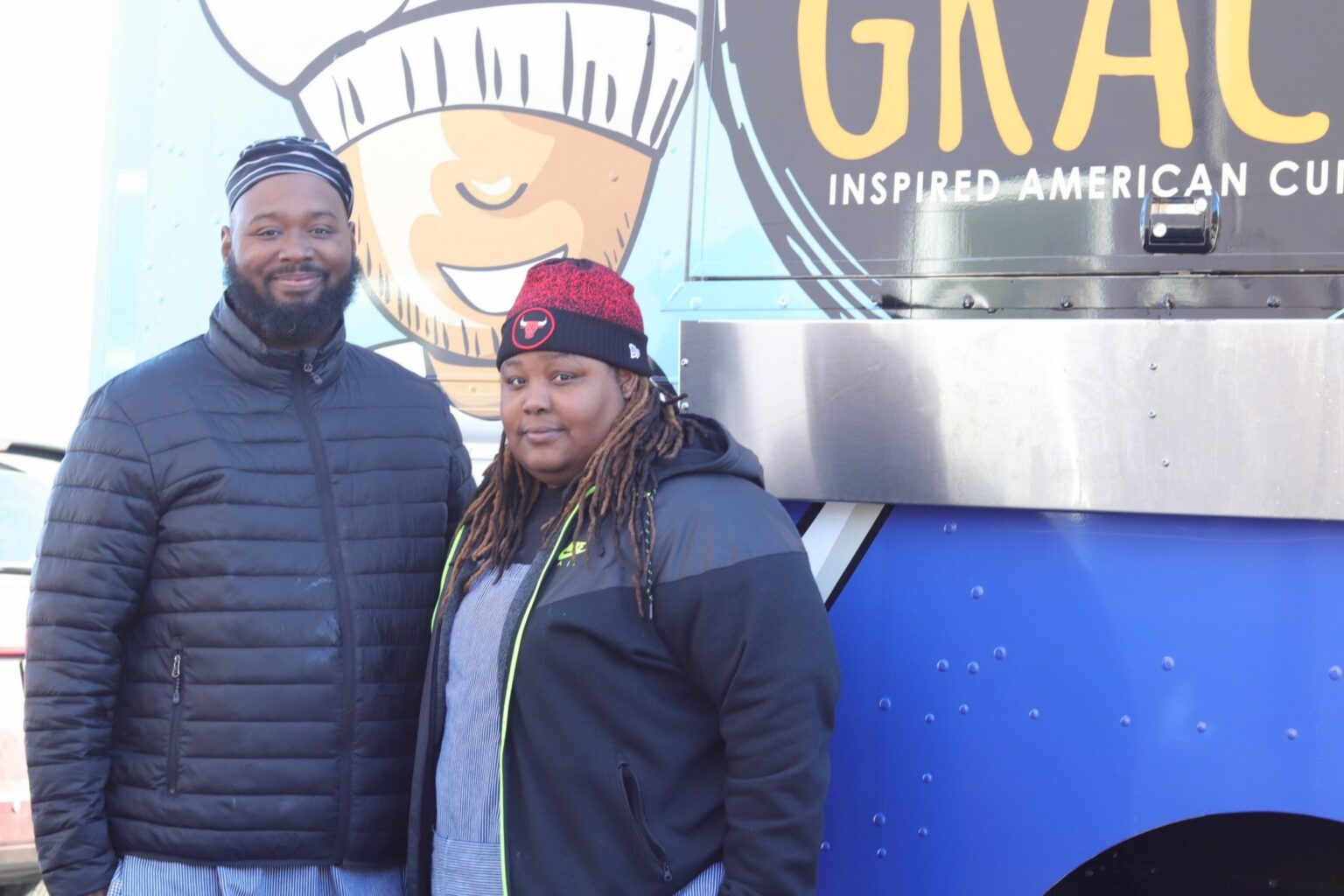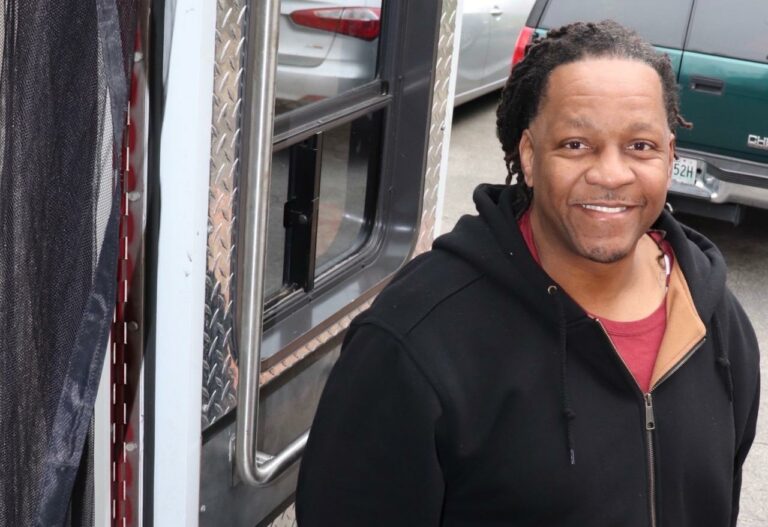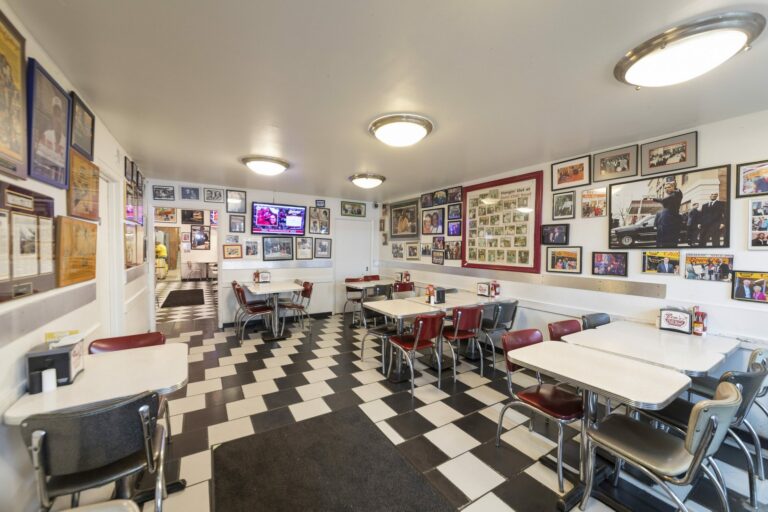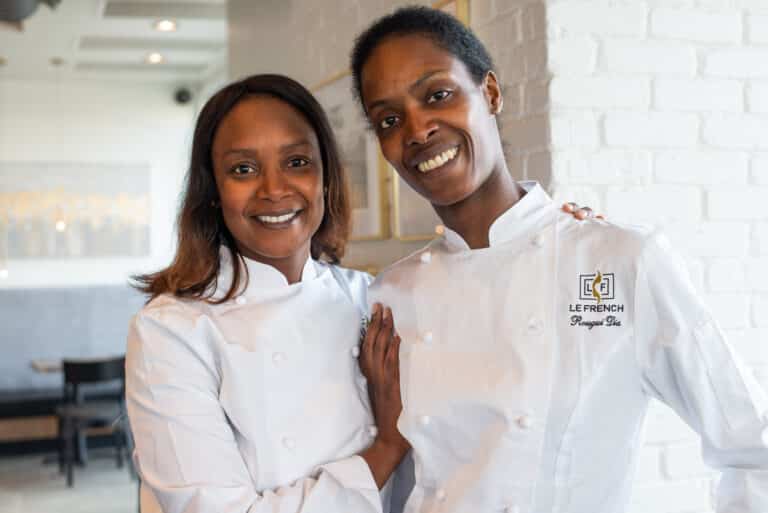In the 2016 film “Barbershop 3: Back in Business,” JD (played by Anthony Anderson) runs a food truck called Gangsta Grub in Chicago. Staffing his truck are young men who were once involved in gang activity. JD not only provides a source of employment for these men and reduces recidivism rates, but he also partners with Calvin (owner of the barbershop) to encourage the local gangs to end the violence and rivalries after the death of one of the beloved youths in the film. While “Barbershop 3” is one of the first popular culture references of Black-owned food trucks, several Black food truck owners have engaged in activism and community empowerment before the film’s release.
I first fell in love with Black food truck activism when I heard about Trap Kitchen in Compton, California, through Facebook. Founded by two former rival gang members (a Blood and a Crip), Trap Kitchen has gained national and even international attention from their story. They have used their platform to speak to youth at juvenile detention centers, encouraging the youth to leave the gang life behind and start their own businesses. While Trap Kitchen has gained Instagram celebrity chef status with tens of thousands of followers and attracted a celebrity clientele, I realized their story of community empowerment through cooking is present throughout the country. I began blogging and traveling the country, meeting food truck owners to hear their stories.
Different Roads to Food Truck Activism
My journey brought me to Atlanta, Georgia on an early Saturday morning in November to the Donna Center for Women & Families. As I pulled into the parking lot, sitting in the middle of the parking lot was A Taste of Grace Food Truck, with Yolanda Adams playing over the speakers. Owned and operated by Elizabeth Baptist Church, A Taste of Grace feeds homeless women and children every Saturday morning at the Donna Center and homeless men at a separate location.
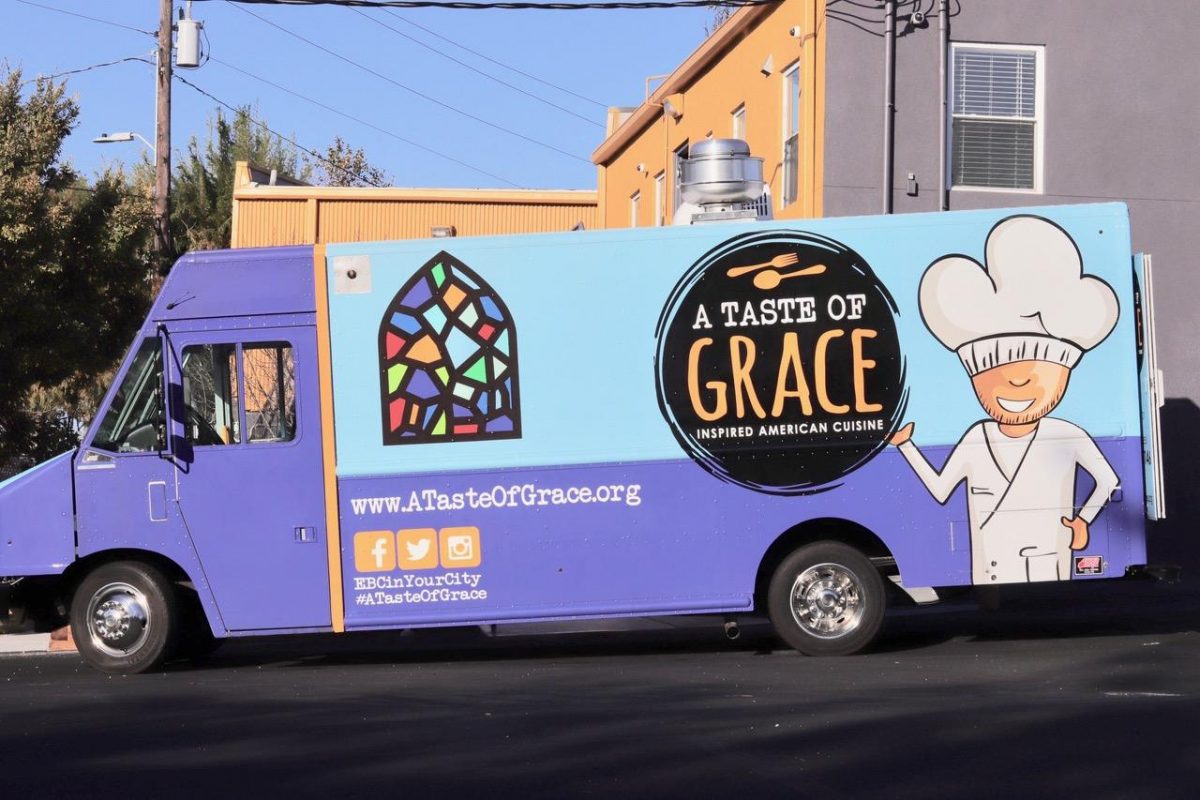
A cart stacked with plates filled with generous portions of grits, eggs, sausage and French toast sticks was dispatched from the truck every 20 minutes until everyone receives food. As I talked to Kenny Lewis (culinary arts director) and Bree, I learned that being able to serve at the center benefits them just as much as it does the attendees. “I see it as a blessing. Just being able to bless others and spread love makes you grateful for all the things you have and makes you want to give back,” says Lewis.
- Sky’s Gourmet: From Taco Truck to Triple Threat
- Two Nashville Food Truck Owners Offer Hope One Plate at a Time
For many Black food truck owners, I noticed that it is often their own experiences that become the driving forces for their activism. Take Emojis Grilled Cheese Bar Food Truck in Austin, Texas, for instance. Owned by Hope Green, Emojis Grilled Cheese Bar uses a portion of its proceeds to support homeless and foster teens in Austin. I traveled to Austin in October as a taste judge for Trucklandia Fest to meet Green and hear her story.
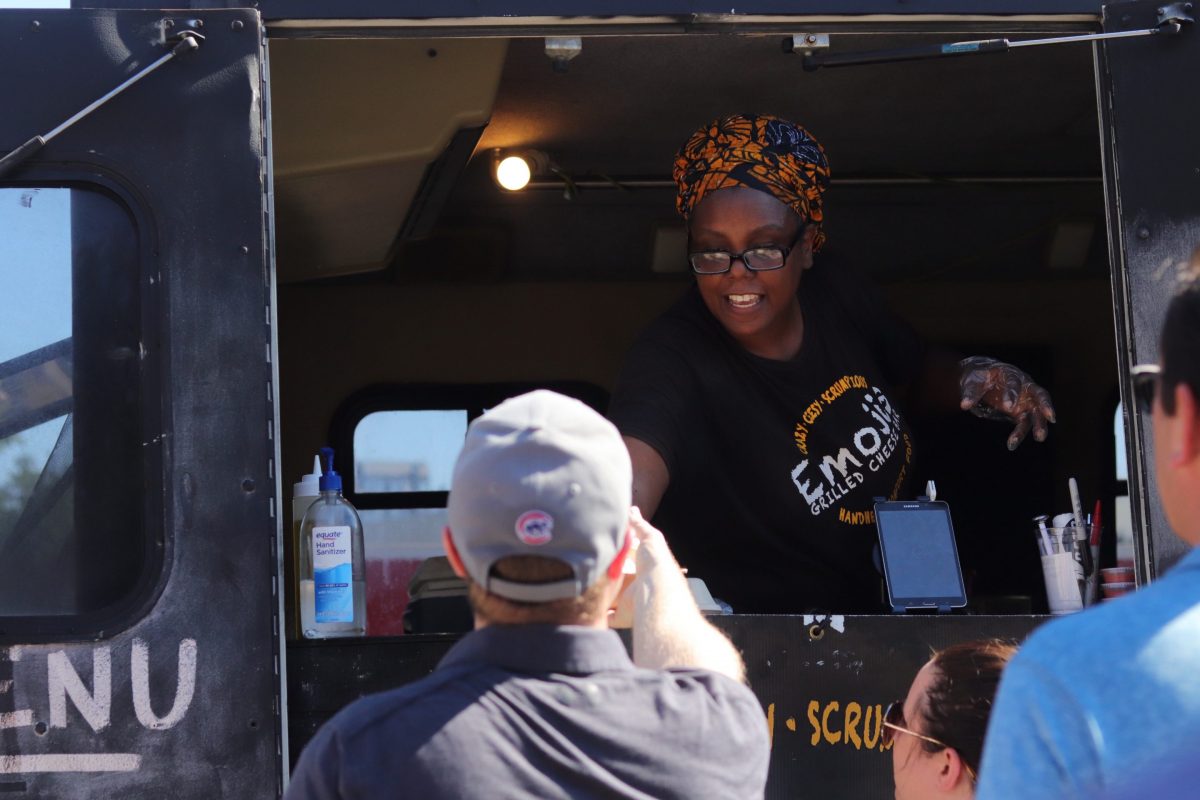
“We started in 2012. I was homeless … I had just lost my real estate company and my house in the 2008 market crash. Now six years later, I work with homeless teens and youth aging out of the foster care system. I teach job skills and life skills seminars as they get real-world experience at my food truck as they find their path to self-sufficiency. I’m in the process of building a foundation entitled The Ground Up Foundation. Youth that work for us two years earn an investment to start their own food service business,” shares Green.
Supporting Entrepreneurs and the Food Truck Movement
Serving homeless populations and mentoring youth away from gang activity are not the only ways Black food truck owners are empowering their communities. Hollywood Grill in Birmingham, Alabama, provides meals for tutoring programs and thousands of dollars to youth athletic programs. Others are making a difference just by exposing people to Black entrepreneurs. Betty White’s food truck, The BBQueen, in Peoria, Illinois, is such an example. White started the food truck after being forced to resign from the Peoria Public School District due to injuries from breaking up fights. She also wanted to create something her family could enjoy together. White says having the food truck has made a positive impact on her and her community.
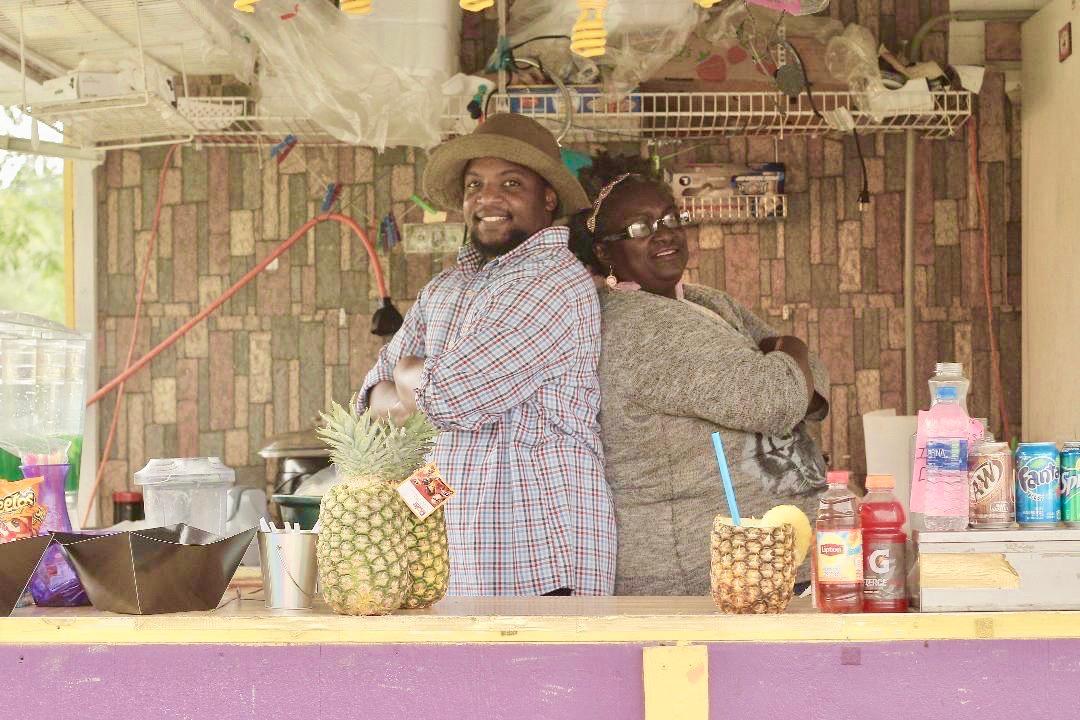
“It’s been an inspiration to the people in Peoria because I was the first Black owner of a food truck that Peoria saw in operation. At least that’s what many of my customers told me. It has taught me I had compassion I didn’t realize was in me. It also helped me believe in myself like never before. It taught me that I have more to live for in my latter years on earth. Another important thing I’ve learned is never give up after a huge defeat because it just might be your victory,” says White.
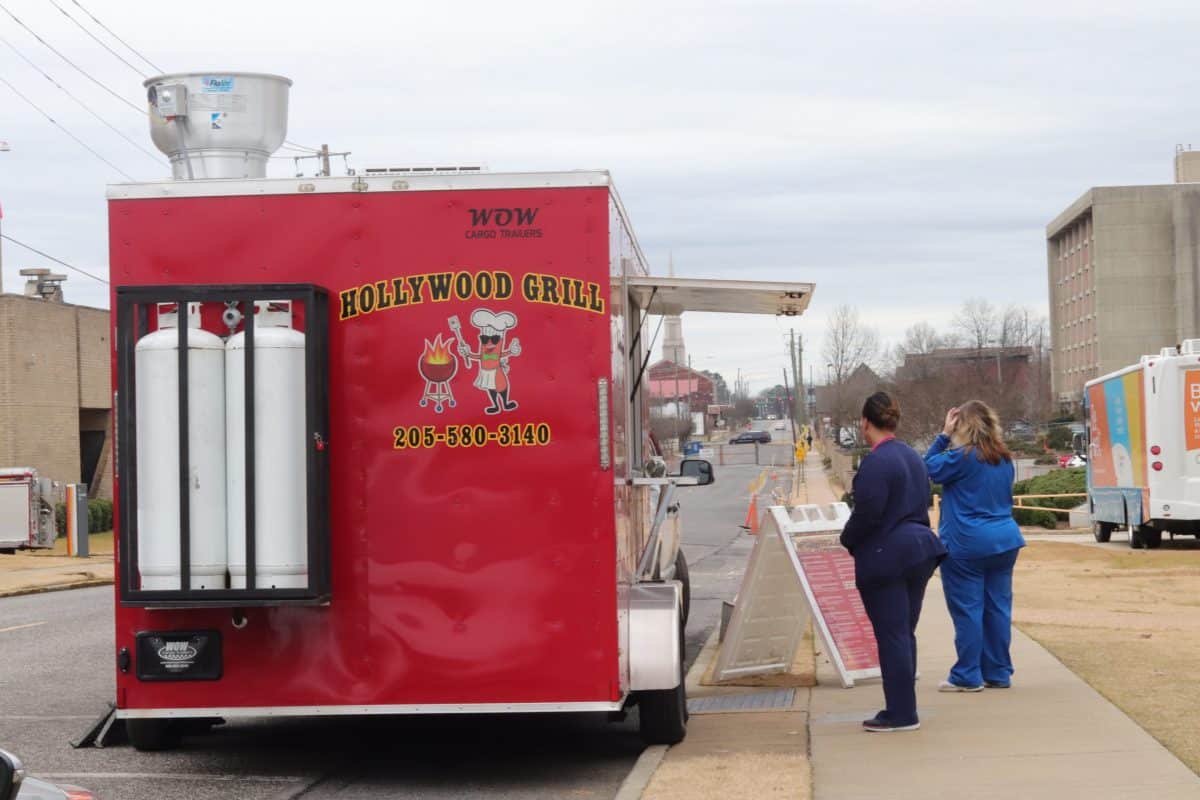
Black business education and exposure are crucial. Simply by being present as a Black woman entrepreneur, White challenged the notion of Black entrepreneurial competence in Peoria, encouraging others to believe that it is possible to thrive while being both Black and entrepreneurial.
Black food truck owners are not just filling stomachs; they are feeding souls, serving resistance to dominant narratives of Black failure and creating vehicles for economic self-sufficiency. The Black food truck industry is a movement that I encourage everyone to support. Buy Black. Buy local. Support your local Black food truck owner.
- Serving Up Social Change: Four Restaurants That Fed the Civil Rights Movement
- Slutty Vegan Starts a New Conversation Around Plant-Based Eating
For more stories like these, tune in to my podcast, The Food Truck Scholar, available on Apple Podcasts. You can also follow me on Instagram.

